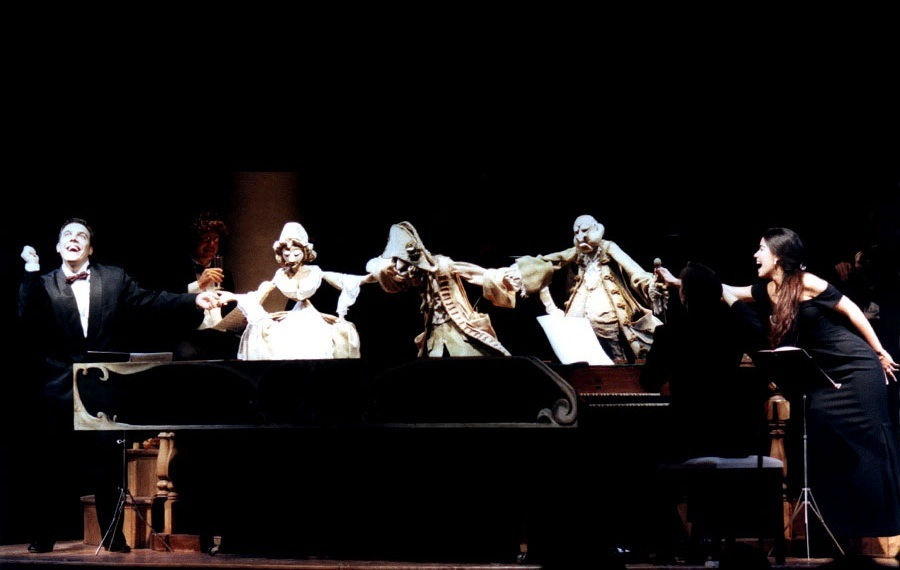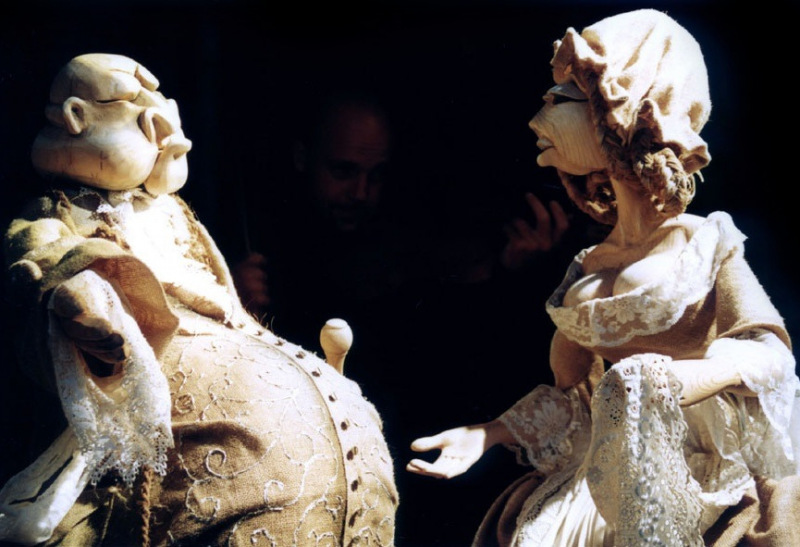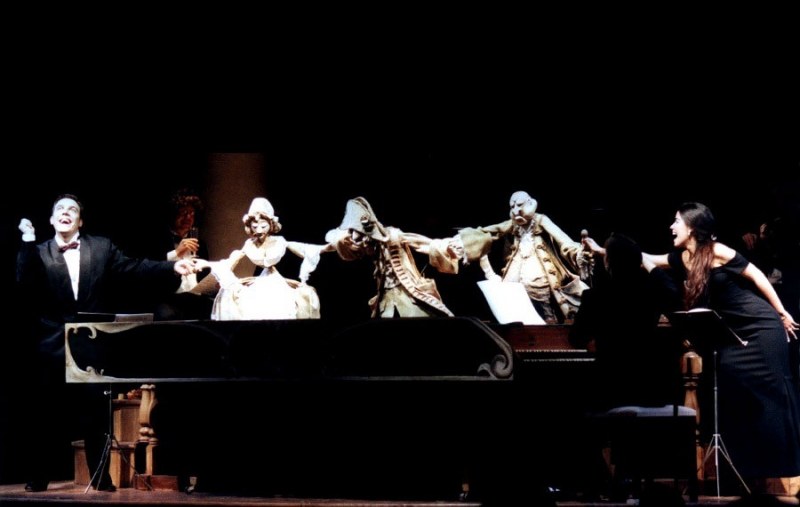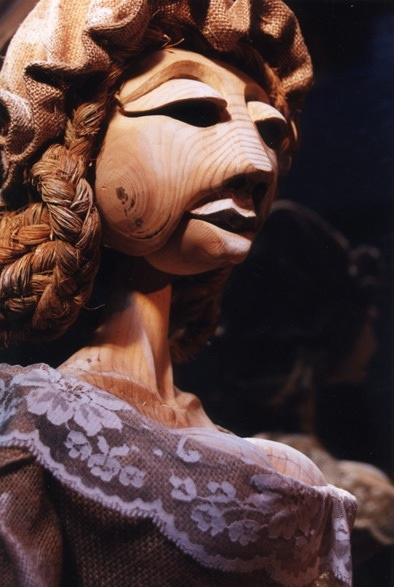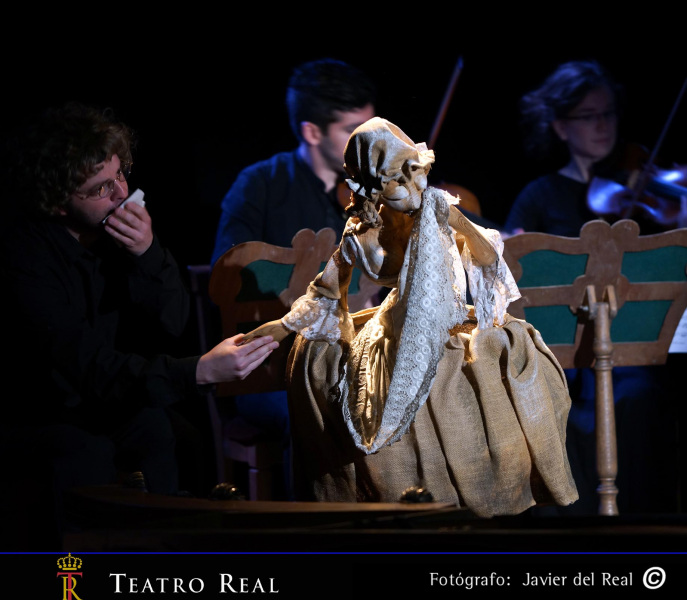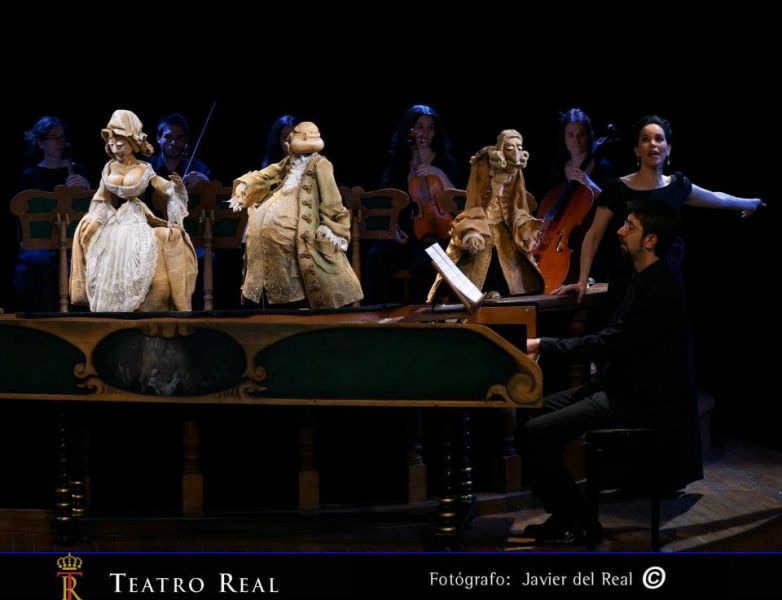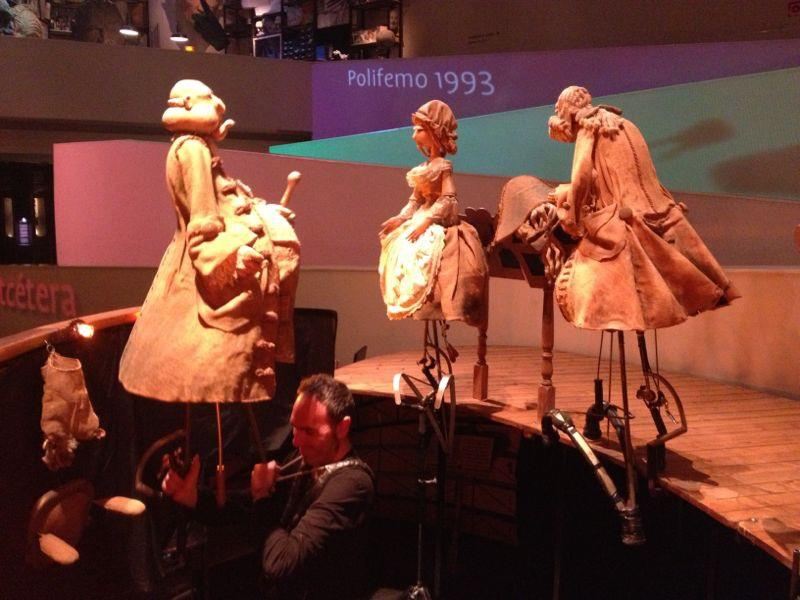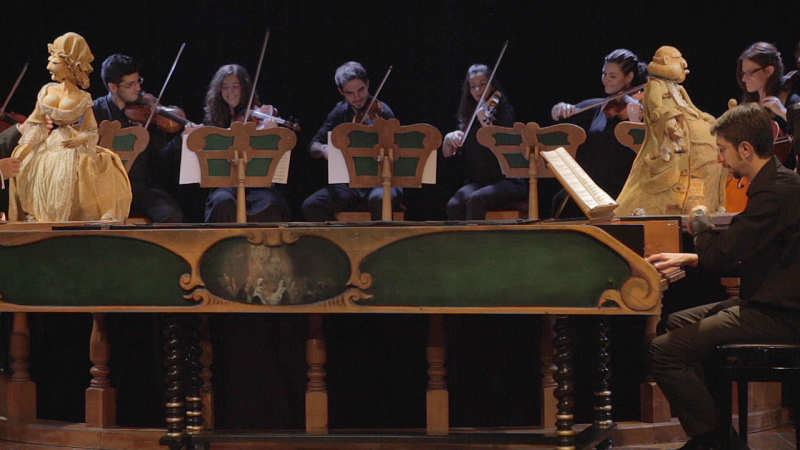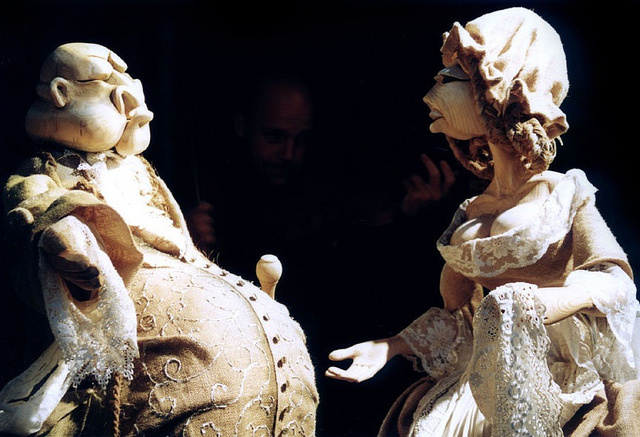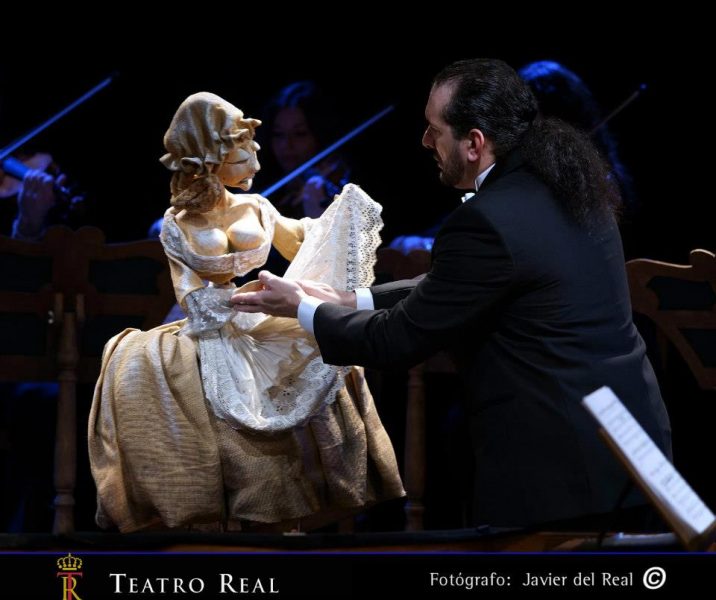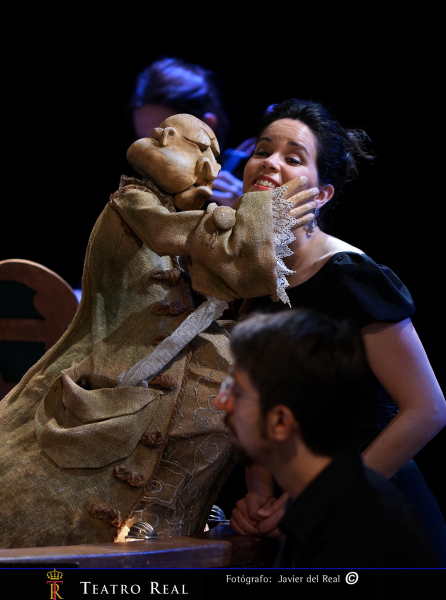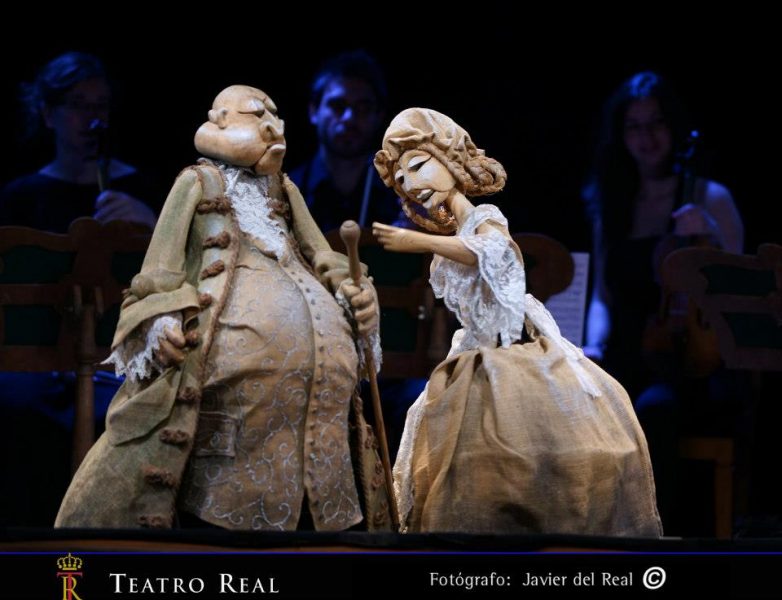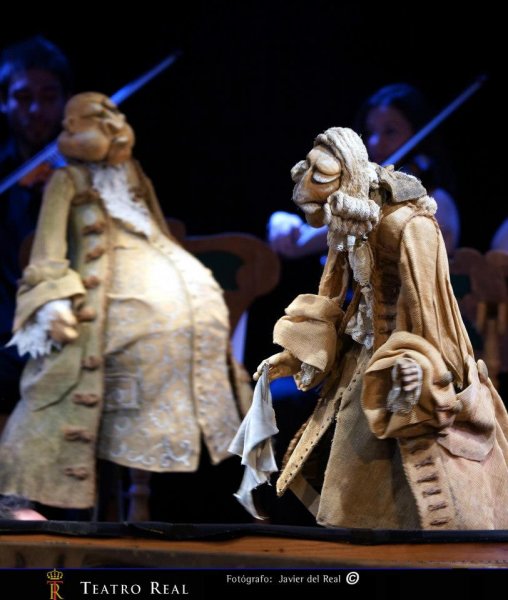La serva padrona
Opera jokes with puppetsPremio Nacional de Teatro para la infancia y la juventud 2014 Ξ Premio Prestigio Turístico Nacional
The show premiered April 19, 1998 in the Auditorio Manuel de Falla, Granada, with singers Mariola Cantarero and Pau Bordas, together with the Orquesta Ciudad de Granada (OCG) directed by Vincent Monteil.
In the same century in which Pergolesi wrote La Serva Pedrona (The Servant Turned Mistress), it was common in Italy to present operas with puppets for children in the chamber theaters of palaces. The puppeteers themselves put the musicians in charge of the compositions. To illustrate the magnitude of this phenomenon, Haydn wrote ten operas specifically for puppets. In the Naples that Pergolesi knew, there existed as many puppet operas, like the popular Pulcinella, and epic songs illustrated with puppets, which would continue until the end of the century to what is today known as both Sicilian and Neapolitan Opera dei Pupi.
In the late eighteenth century, an Italian company based in London, called Italian Fantoccini, included The Servant Turned Mistress in its repertoire. More recently, the prestigious company of Vittorio Podrecca, Teatro dei Piccoli, which has since toured the world, debuted in 1914 with a program consisting of three musicals, including The Servant Turned Mistress.
Etcétera’s treatment departs from traditional approaches to puppet operas, where puppets are the mere representation of characters. The opera’s various elements (instrumentalists, singers, actors, puppeteers, and puppets) allow for their interaction — transcending the ranges to which they belong. With Etcétera, the viewer is a participant in a framework that brings together eighteenth century puppeteers, who travel the world with their show, their puppets, and adopt an autonomy independent of the script, and embody, in turn, actors of a Commedia dell’Arte performance. This is combined with the musicians’ presence onstage. The director and the singers (of present day) who — to escape their traditional roles — at times are caught in comic situations with the puppets. The stage is set around the puppets who appear between the musicians (a soprano and a baritone together with a chamber orchestra encircling a clavichord).
Puppets with worn and dusty looks, feature complex mechanisms that allow for an organic and natural mobility. Made of wood and burlap, they are attached to the puppeteer’s body, leaving their hands free for the use of rods and other resources. Etcétera’s The Mistress Turned Servant is an excuse to create a show that goes beyond music and puppetry, to become a source of references, a discourse on music, theater, and staging.
This show will be replayed in April 2013 in the Teatro Real, Madrid. Here you can see a preview of the season 2012-2013.
Ficha artística:
Music: Giovanni Battista Pergolesi
Libretto: Genaro Antonio Federico
Puppets, scenery and staging: Enrique Lanz
Production: Etcétera
